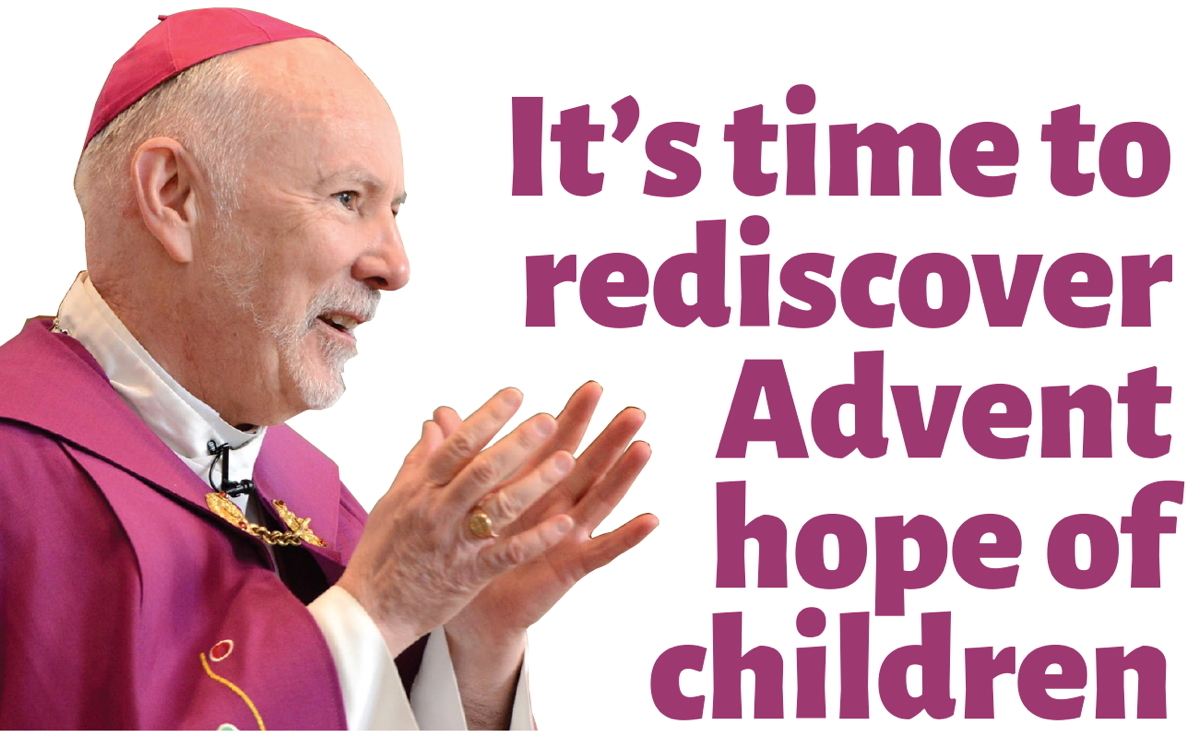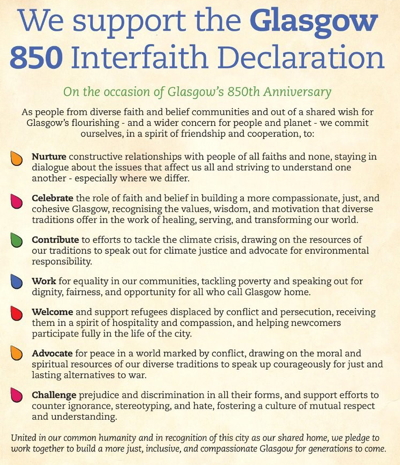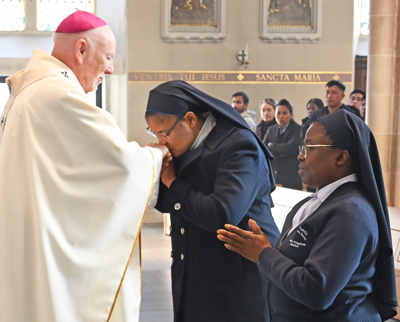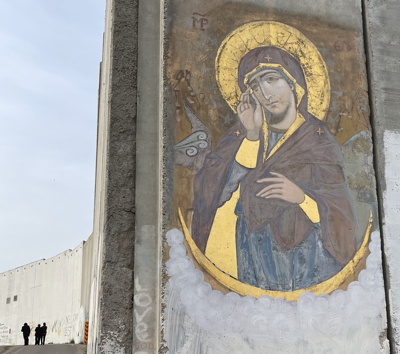
Official Journal of the Archdiocese of Glasgow
December 2025

Interfaith

In a powerful show of unity amid rising global and local tensions, faith and belief leaders from across Glasgow’s communities have signed the ‘Glasgow 850 Interfaith Declaration’ a statement of shared values and commitments to build a more just, inclusive, and compassionate Glasgow.
Read more…
Religious

Sisters from a Nigerian order who have taken up a new ministry in the Archdiocese were given a warm Glaswegian welcome at a special Mass in St Andrew’s Cathedral.
Read more…
Holy Land

As we look at a crib we should see hope and life in the vulnerability of the child newly born.
Read more…